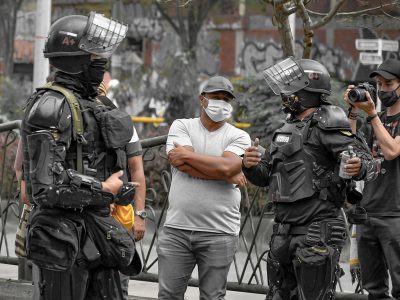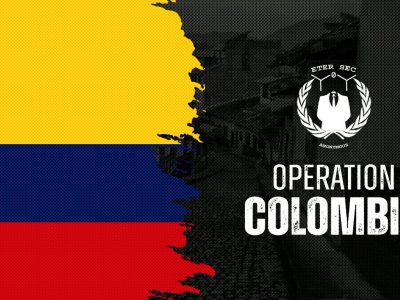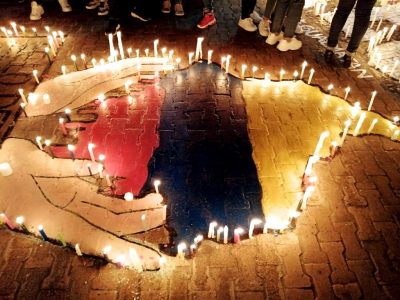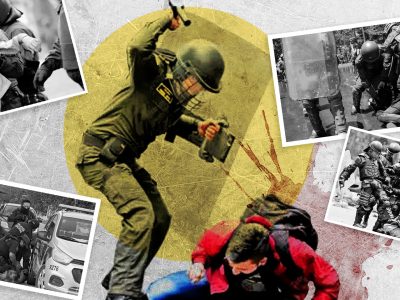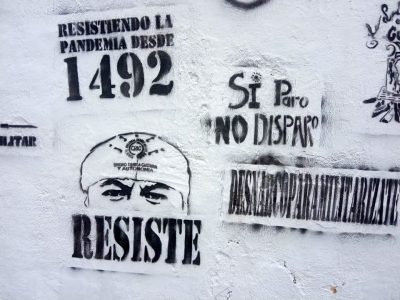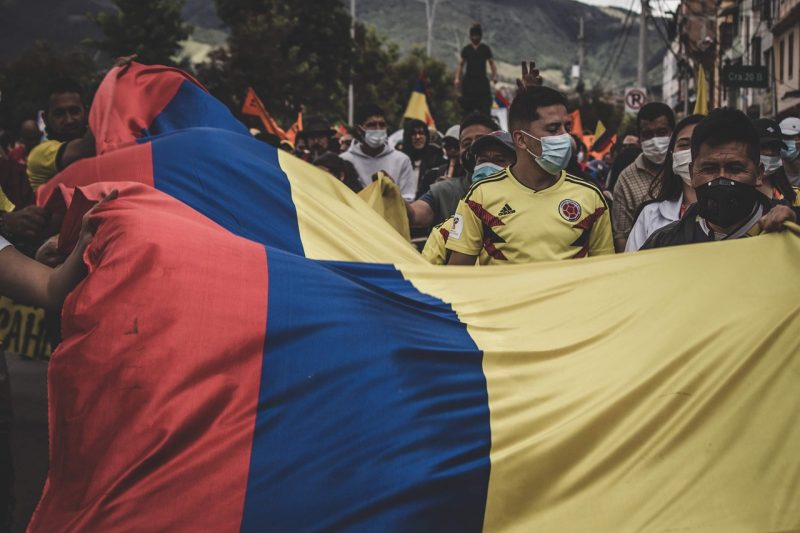
Imagen de jramirezsfs en Pixabay
For weeks, thousands of Colombians have taken to the streets in Colombia's major cities, often at the risk of their own lives as police officers have responded with lethal force. What started as demonstrations against a tax reform — seen as an additional burden on already economically vulnerable people during the COVID-19 pandemic — transformed into a rallying call for more equality and less military and police violence. The protests are called el Paro Nacional, or the National Strike.
The strikers represent diverse groups within Colombian society, with unionists, students, Indigenous people, workers, and teachers on the streets. The protests have also transpired in the digital realm, with reports of censorship, hacktivism, and manipulation of the online narrative. Talks with the Colombian government led by Iván Duque are ongoing as of June 1 but frequently stall.
Most of the demonstrations are peaceful. Yet, the number of victims has increased each week, with reports of deliberate police violence. Here is a frequently updated tally made by the Institute of Studies for Peace and Development (Indepaz). The United Nations and European Union condemned the excessive use of force in Colombia.
Global Voices contributors cover different points of view on the street protests and online activity during Colombia's National Strike. Take a look at our stories below:
Stories about Fighting rising inequality in Colombia
Colombia, divided and facing profound change in upcoming presidential elections
On June 19, there is a real possibility that left-wing running mates will secure the highest office for the first time in recent Colombian history
Colombians ‘save the evidence’ as they denounce social media censorship of protests
Different strategies have been created to preserve the record of ongoing protests and state violence, as well as of the content being censored on social media.
Colombian students set up humanitarian camp to resist police crackdown
"We have an overwhelming task and we should assume a leading role during the mobilization"
Hacker group Anonymous leaks Colombia's police and army files amid protest crackdown
The police data leak was in retaliation for "aggressive and cruel repression to the demonstrations of popular and democratic power," a member of the Anonymous group told Global Voices.
A battle for information is sweeping Colombia amid nationwide protests
Journalists, K-Pop fans, and community radio stations fight to share information on the country's protests.
Indigenous peoples join the national struggle in Colombia's strike
The Indigenous guard protects protestors by setting up humanitarian corridors
The legacy of militarism in Latin America's police: Shoot to kill
After a series of abuses, citizens demand reforms. Can Latin American police forces leave behind a long-held militaristic culture?
Street art shows the clamor of the Colombian people tired of violence, corruption and poverty
Throughout Colombia, facades of buildings, businesses, institutions have been painted with messages of anger, hope, and sadness


